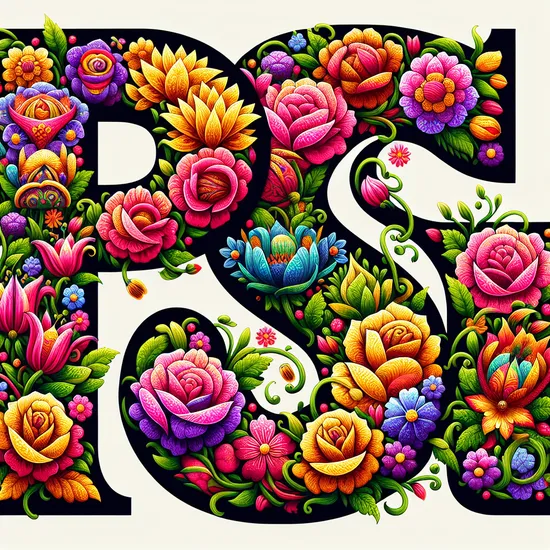Puspa: Meaning, Origin, Popularity & Similar Names
The Meaning of Puspa
The name Puspa carries the beautiful meaning of a blossom or flower. It symbolizes a person who brings beauty and fragrance into the lives of others, akin to a gentle bloom. This name exudes grace and a natural charm, making it an attractive choice for those who appreciate the softer elements in nature.
Find more names related to the name Puspa.
Blossom,
Flora,
Flower,
Petal,
Sanskrit,
Indian,
Pronunciation of पुष्प in Sanskrit
ˈpuʃ.pə - पुष्प
- /ˈp/: like the 'p' in 'speak'
- /uʃ/: similar to 'ush' in English
- /pə/: as 'puh'
Say 'PUSH-puh', with emphasis on the first syllable.
Origin of the Name Puspa
Puspa finds its roots in the Indian subcontinent, specifically in the Sanskrit language. Historically, it has been used to denote a sense of natural beauty and harmony, reflecting the values and aesthetics of ancient Indian culture. The use of this name is prevalent among regions that have Sanskrit influences.
Gender Neutrality of Puspa
The name Puspa is gender-neutral, often chosen for both males and females. In India, it crosses gender boundaries, celebrated by people of all backgrounds. Notable individuals, such as Puspa Kamal Dahal, reflect its versatility across genders. This neutrality enhances its appeal in today’s evolving naming trends.
Popularity of the Name Puspa
The name Puspa enjoys moderate popularity, predominantly in India and surrounding regions. It has held a steady presence in baby naming charts, reflecting traditional preferences for names inspired by nature. Its popularity has evolved, with occasional resurgences due to cultural influences and social figures.
Global Usage of Puspa
Globally, Puspa finds varied usage, especially in countries like Nepal and Indonesia, often appreciated for its linguistic harmony. The name may have different pronunciations based on regional accents, but the essence remains consistent, celebrating nature’s beauty wherever it travels.
| Global Distribution and Gender Ratio of the Name Puspa |
| Country |
Usage % |
Female % |
Male % |
| ID |
91.17% |
98.28% |
1.72% |
| MY |
4.27% |
93.33% |
6.67% |
| US |
0.85% |
100% |
0% |
| AU |
0.71% |
100% |
0% |
| TR |
0.43% |
100% |
0% |
Analysis of gender and global popularity derives from data available at
Gender API.
Characteristics of People Named Puspa
- Creative: Individuals named Puspa often express themselves through art and innovation.
- Empathetic: They possess a strong sense of understanding and feel deeply for others.
- Charming: Known for their pleasant personality that attracts people easily.
- Graceful: Exhibit elegance in their actions and demeanor.
- Natural Leader: Frequently take on leadership roles with ease.
Professional Orientation for Puspa
- Education: Teaching and sharing knowledge come naturally to them.
- Art and Design: Thrive in careers related to creative arts.
- Healthcare: A strong calling towards serving others in medical professions.
- Environmental Sciences: Passion for nature leads to careers in environmental conservation.
- Leadership Roles: Natural abilities suit them to managerial and executive positions.
Unique and Interesting Aspects of Puspa
- Film Influence: The name has been popularized in movies and TV series, adding a cultural dimension.
- Literary Usage: Often features in poetry and novels celebrating nature.
- Historical Figures: Signifies beauty in Indian classical history.
- Cultural Festivals: Involves flower decorations, symbolizing its meaning.
- Modern Appeal: Used in branding products related to floral beauty.
Famous People Named Puspa
- Puspa Kamal Dahal: Nepalese politician and former Prime Minister.
Similar Names
-
Pushpita: Of Indian origin, meaning connected to flowers or blossoms.
-
Pushpalatha: A name signifying beauty and fragrance, similar in phonetics.
-
Pushpaaj: Inspired by nature, signifying a delightful blossom.
-
Padma: Related to lotus, an emblem of beauty and purity.
-
Kusum: Refers to a flower in bloom, sharing its softness and grace.
-
Sumana: Meaning flower, provides a phonetic similarity.
-
Rupali: Connoting beauty and charm.
-
Sugandha: Evokes fragrance, a symbol of delightful aroma.
-
Madhavi: Inspired by nature, symbolizing spring.
-
Kamala: A lotus, representing beauty and grace.
